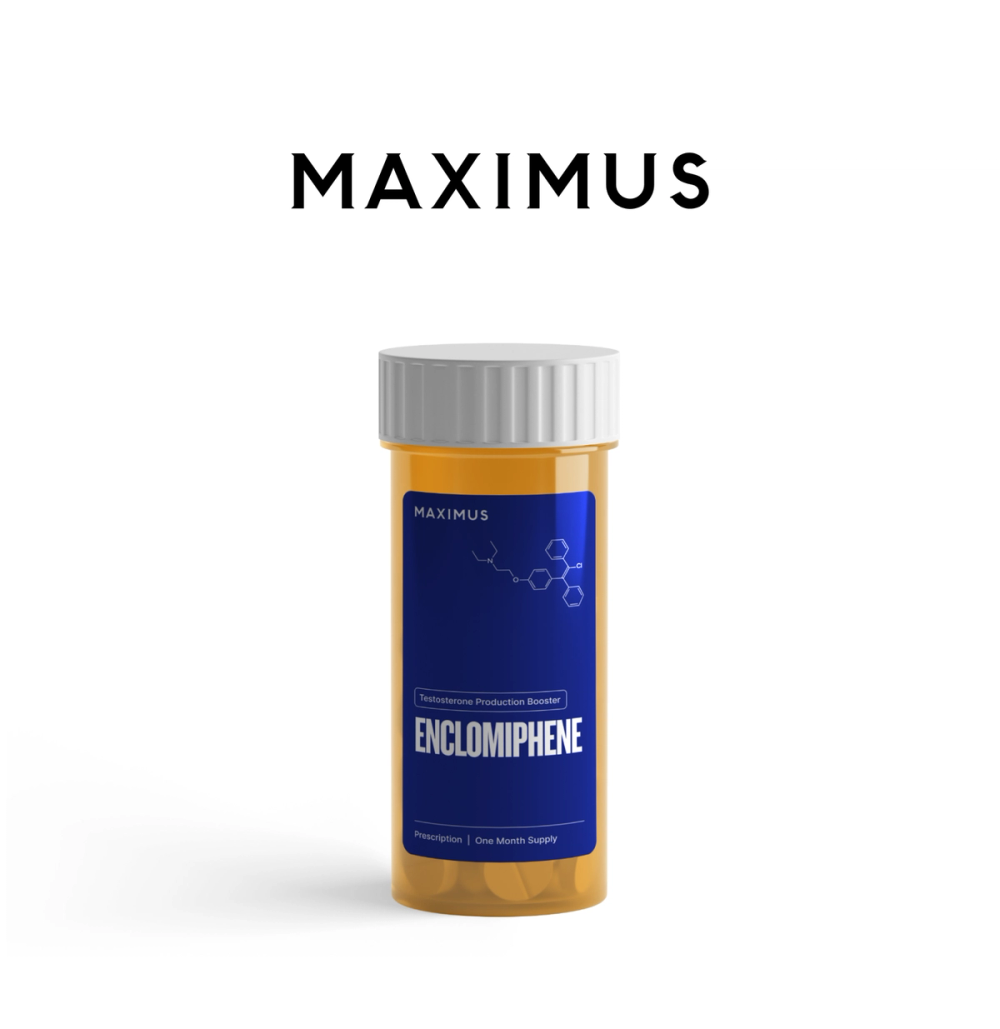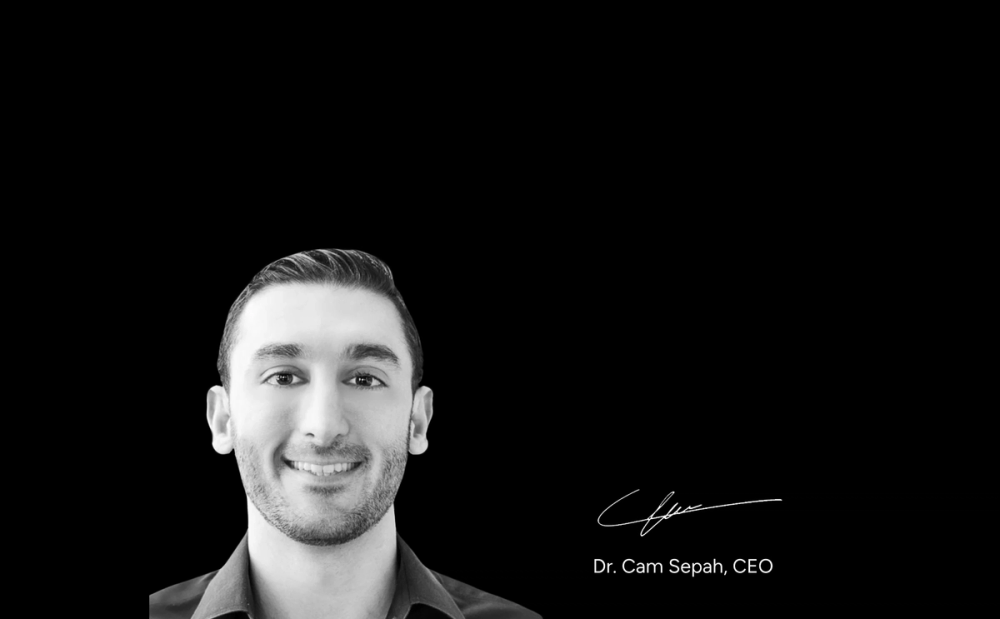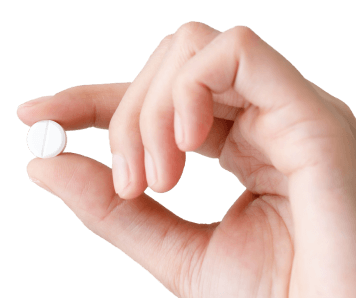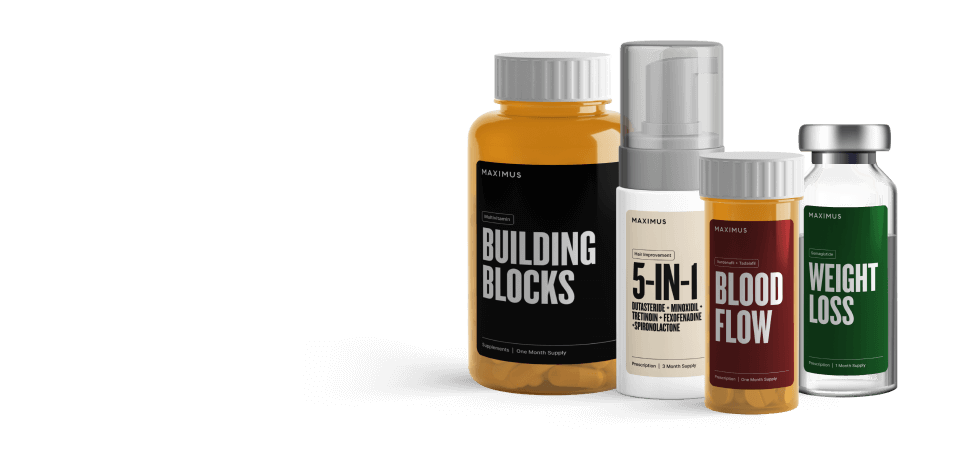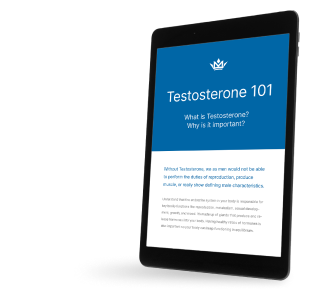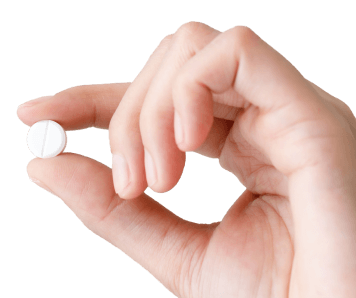Key takeaways
- A well-rounded diet and consistent exercise regimen are scientifically-backed ways to increase testosterone and support overall health.
- For men wondering how to boost testosterone, avoiding extremes in protein consumption, calorie restriction, or alcohol intake may best support their goals.
- Reducing stress and noise pollution and increasing sunlight can boost testosterone naturally.
How to Boost Testosterone: 10 Daily Habits You Need
Testosterone plays a key role in energy, muscle mass, libido, mood, and overall health.
Over the past two decades, testosterone levels in men across the United States have been declining, wIth the causes still not entirely understood.
While testosterone replacement therapy (TRT) is one approach to increasing testosterone levels, many men are curious about how to boost testosterone naturally.
If you’re interested in exploring how to increase testosterone as part of your daily routine, here are 10 habits to help support and maintain optimal levels.
1. Eat a well balanced diet
A balanced diet rich in whole foods is fundamental for maintaining healthy testosterone levels. Focus on consuming lean proteins, healthy fats, complex carbohydrates, and vegetables.
Include foods rich in micronutrients and antioxidants, such as leafy greens, beef, chicken, and fatty fish.
Among healthy men, avoiding calorie restriction and nourishing your body with high-quality foods helps create the foundation for testosterone production.
2. Get plenty of restful, high quality sleep
Quality sleep is essential for maintaining optimal testosterone levels.
During sleep, especially deep sleep, the body undergoes important processes that regulate hormones. Aim for 7-9 hours of uninterrupted sleep each night.
Establish a consistent bedtime routine, reduce screen time before bed, and create a cool, dark, and quiet sleep environment.
Proper sleep not only supports testosterone production but also improves mood, energy, and overall well-being.
3. Exercise regularly
If you’re wondering how to boost testosterone naturally and you don’t have an established exercise routine, it’s time to change that.
One option to increase testosterone is to engage in resistance training, which increases testosterone levels and supports muscle growth and conditioning.
Not the type to lift weights? That’s okay: a review of 12 scientific studies investigating multiple forms of exercise, such as HIIT, aerobic training, and resistance training, reported an increase in testosterone levels after exercise, regardless of the type, duration, or intensity.
Whether you’re into weight lifting or high-intensity interval training, heading to the gym is an evidence-based way to increase testosterone.
Not only will you experience that post-workout testosterone peak, but you’ll reap the benefits of increased strength, body composition, and overall fitness.
4. Consider your protein intake
Protein is essential for muscle repair and growth, but like anything, you can have too much of a good thing.
While consuming high-quality sources of protein can increase testosterone, ultra-high protein intake may actually decrease testosterone levels.
One meta-analysis reported lower testosterone levels in healthy men that consumed greater than 3.4 g/kg/day of protein.
The good news? That amount is far from the norm, with typical protein consumption falling around the 1.3 g/kg/day mark and conventional high-protein diets recommending around 1.8-3 g/kg/day.
So go ahead and enjoy that steak, but remember not to overdo it.
5. Skip intermittent fasting
Intermittent fasting (IF) has become popular for weight management and metabolic health, but many myths about this dietary pattern still exist in the media.
Some news outlets and researchers have proposed that IF may increase testosterone levels, potentially through regulating the body’s natural circadian rhythm, or 24-hour sleep-wake cycle.
The reality is that much more research is needed. As of now, it’s hard to draw conclusions based on the limited research that’s available.
Results from four clinical trials have shown that fasting throughout the day decreases testosterone levels in physically active men.
However, despite the lower testosterone, there were no negative changes in body composition or strength. If you’re looking to boost testosterone naturally, consider skipping IF until more data comes in.
6. Maximize your returns on investment (literally)
Which came first, the chicken or the nest egg? You may be surprised to learn that financial success can also boost testosterone levels.
One study found an association between men who experience wins in competitive financial environments, such as stock market gains or other investment successes, and a natural increase in testosterone levels.
It’s important to approach this carefully — the study also reported high testosterone led to riskier financial decisions overall.
Mindfulness and informed decision-making can help maximize returns without unnecessary risk. Regardless of your investing experience, learning how to boost testosterone by staying confident and balanced may enhance both your market success and overall well-being.
7. Limit alcohol intake
Excessive alcohol intake can interfere with the body’s hormone system and decrease testosterone.
Chronic drinking can also elevate stress hormones like cortisol, further suppressing testosterone levels.
By moderating alcohol intake, you allow your body to maintain optimal hormonal function, support reproductive health, and preserve muscle-building and fat-burning capacities.
8. Avoid excessive stress
Chronic stress elevates cortisol levels, interferes with the communication between the brain and the testes, and suppresses testosterone production.
In fact, one study demonstrated that prolonged stress decreased testosterone levels in healthy men.
Thinking stress might be inevitable? There’s still hope: the same study went on to report that adapting to the stress causes testosterone levels to rebound, even after they decrease from chronic stress.
9. Avoid noise pollution
This just in: noise pollution from your environment may decrease testosterone levels — but only among certain age groups.
Emerging research on men over 37 years old suggests that exposure to noisy workplaces may lower both free and total testosterone.
This likely happens by disrupting the brain-testicle communication pathway. But among men of other ages, those who reported working in loud environments didn’t have lower testosterone levels.
While this area of study is still developing, reducing exposure to noise pollution is worth considering for those exploring how to increase testosterone and optimize health.
10. Go outside
Vitamin D, which is primarily obtained from sunlight, is closely linked to testosterone production and sperm quality among infertile men.
Just 10 minutes of direct sunlight can significantly increase vitamin D levels, depending on your skin tone and location. For those in regions with limited sunlight exposure, a high-quality supplement containing vitamin D3 may be beneficial.
Beyond lifestyle: How to increase testosterone
Increasing testosterone naturally is about more than just one change — it involves adopting a balanced approach to diet, exercise, sleep, stress management, and your environment.
If you’re looking for more direct ways to increase your testosterone levels, explore Maximus' Oral TRT+ or EP protocols to complement your daily habits and achieve your best self faster.
